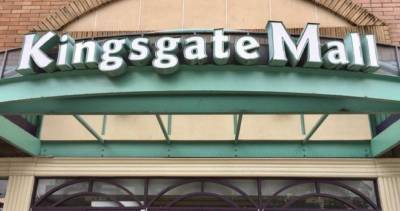B.C. government receives criticism and praise in response to new tax on Metro Vancouver home sales to foreigners
Yesterday (July 25) the B.C. government caught a lot of people off guard when it announced it was implementing a 15-percent tax on residential Metro Vancouver real-estate sales to buyers who are neither a citizen nor a permanent resident.
Since then, reviews have been mixed.
Tom Davidoff is a UBC economics professor who has called for a more targeted tax on home buyers who do not earn an income in the region. He suggested the measure could cool demand.
“I think there are going to be foreign buyers turned off by this; 15 percent is a very big number,” he said. “I just can’t believe anybody is going to pay $750,000 (in foreign buyer tax) on a $5-million home. I guess somebody might, but that’s a hell of a tax to pay.”
But Davidoff also said that determined foreign buyers could find ways around paying the new fee.
“The question is, will buyers be able to successfully…hide their identity by having a local permanent resident, a local corporation or a local family member who is a citizen through which they can funnel cash?” he asked.
David Ley, a UBC professor who has studied immigration and housing issues for more than two decades, noted that similar efforts enacted elsewhere have had tangible effects.
“Other cities that have employed a tax at this kind of scale have, indeed, cooled the market at the top end,” he said. “It does have an effect.”
B.C. NDP leader John Horgan was more cynical, arguing that the new tax can be avoided.
“People of good intent will check that box, but people of ill intent who are here to launder their money are not going to check that box,” he said in a reference to how the data is collected via a property-transfer tax form.
“You hire yourself a tax lawyer, you hire yourself an accountant and you can get by that pretty quickly,” Horgan said in another interview. “I think sophisticated investors, those who are laundering money in our real-estate market, will be able to get by that very quickly.”
Others, including Canadian Taxpayers Federation B.C. director Jordan Bateman, argued that a 15-percent tax was simply not enough to sway the actions of buyers who are exceedingly wealthy.
"If you're spending 10, 15, or 20 percent over asking, what's 15 percent going to do? It's not going to discourage you,” he said.
Bateman also noted the tax was an easy win for the provincial government.
"There is nothing more popular than a tax on somebody else," he said.
Members of the real-estate industry largely reacted negatively to news of the tax, noting it was introduced without their input.
Dan Morrison, president of the Real Estate Board of Greater Vancouver, criticized the government for acting unpredictably.
“Government has had a long time to take action on the affordability issue, yet they decide to bring this new tax in over a long weekend, with no notice, and no time to prepare,” he said. “To minimize short-term volatility in the market, we’re calling on government to exempt real-estate transactions that are in the process of closing from this new tax."
The region’s mayors largely welcomed the news.
Vancouver mayor Gregor Robertson said more work was needed to improve housing affordability but that the tax was a step in the right direction.
“While I’ve called for other regulatory tools—including luxury and speculation taxes—a higher transfer tax on foreign buyers has the potential to address some of the speculation we’re seeing in our housing market, which would be a positive step in easing affordability pressures on residents,” he said.
“Even if we stopped all speculative investment in housing today, we’d still have a near-zero rental vacancy rate, and thousands of people on waiting lists to get off the streets and into housing,” Robertson continued. “I urge the Province to match their efforts to cool the market with a commitment to invest in creating new low and middle income housing in Vancouver and throughout B.C.”
Burnaby mayor Derek Corrigan emphasized that money collected through the new tax should be spent on affordable housing, something the provincial government has so far not explicitly said it will do.
“I’m hoping also that the redirection of the money will help in establishing more social housing, whatever mechanism is there to administer it,” Corrigan said.
Other observers noted that because the tax only applies to home sales in Metro Vancouver, it could push the issue of foreign money to other regions.
"It may, in fact, lead to greater foreign demand for housing in areas like the Fraser Valley, Squamish, Greater Victoria, and the central Okanagan,” said Jock Finlayson, executive vice-president of the Business Council of B.C.
Stuart Levings, president and CEO of Genworth MI Canada, a private-sector mortgage insurer, suggested Toronto could most acutely feel unintended consequences of the tax.
“If you tighten up Vancouver and not Toronto, what was going to Vancouver is just going to go to Toronto,” he said. “So we’re shifting the problem from the west coast to Central Canada.”















Comments